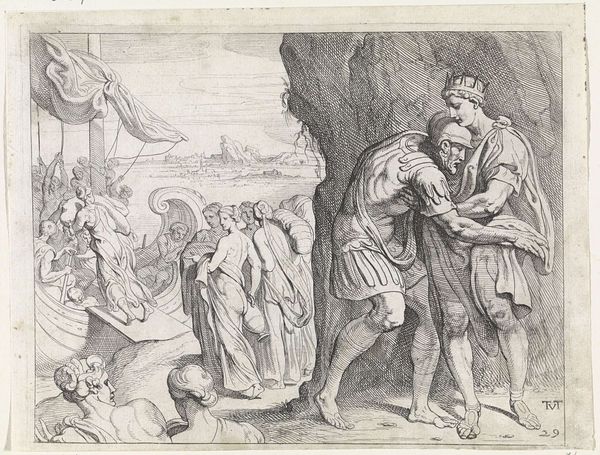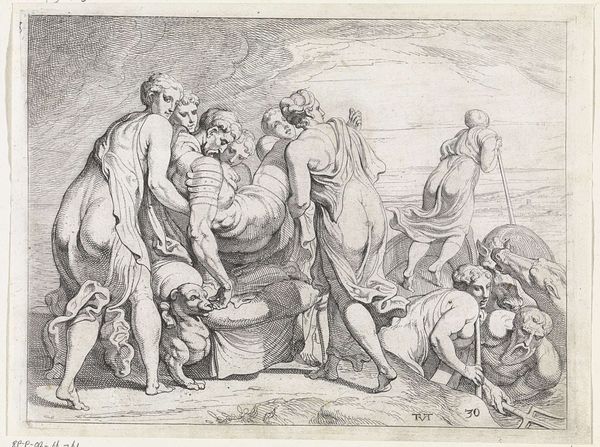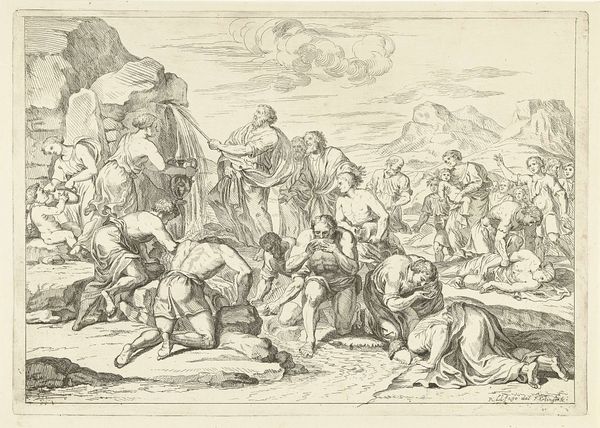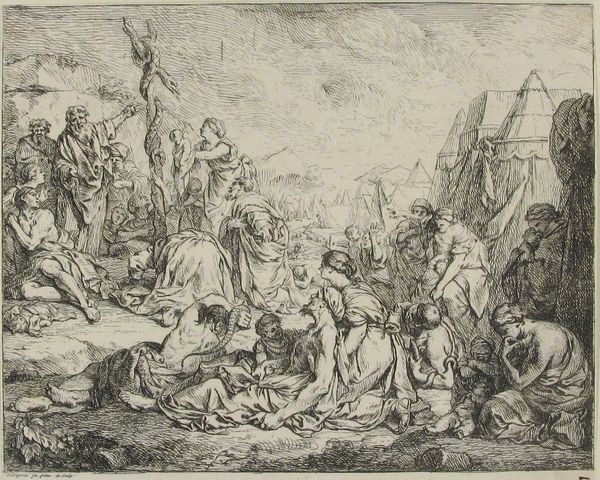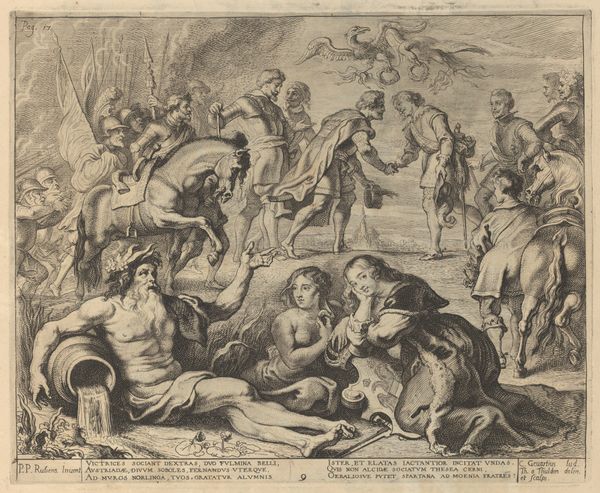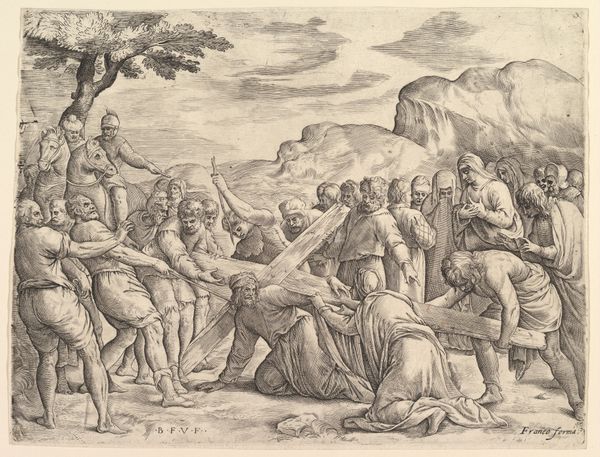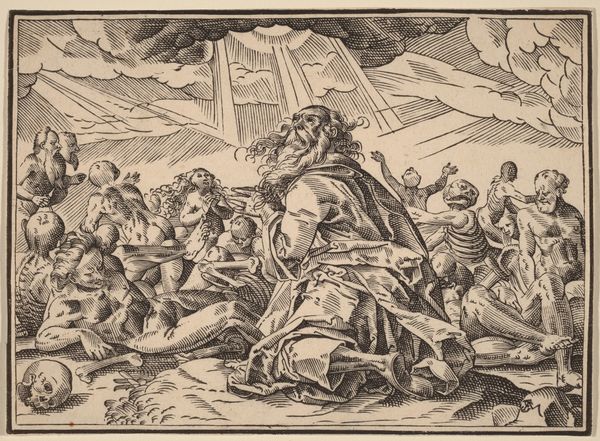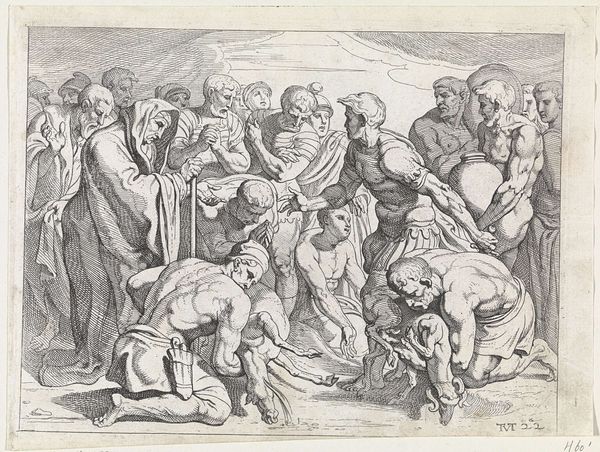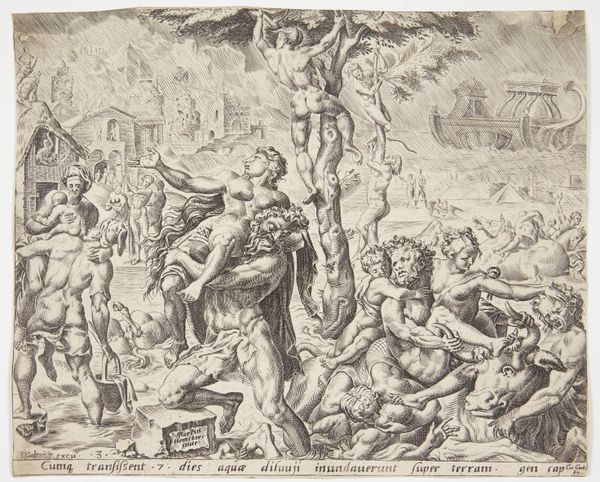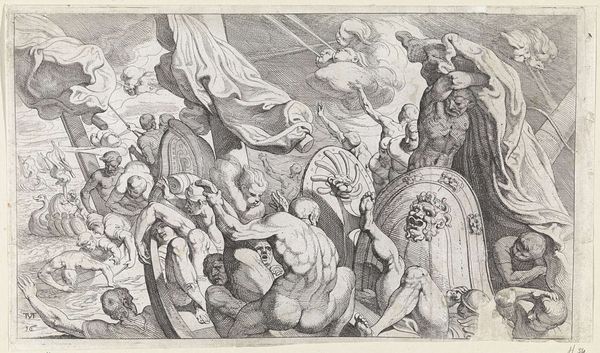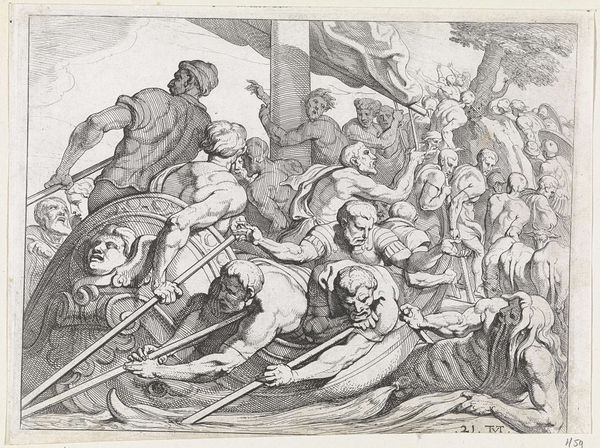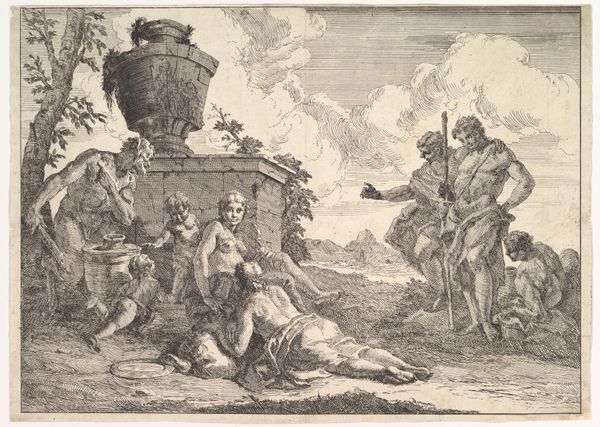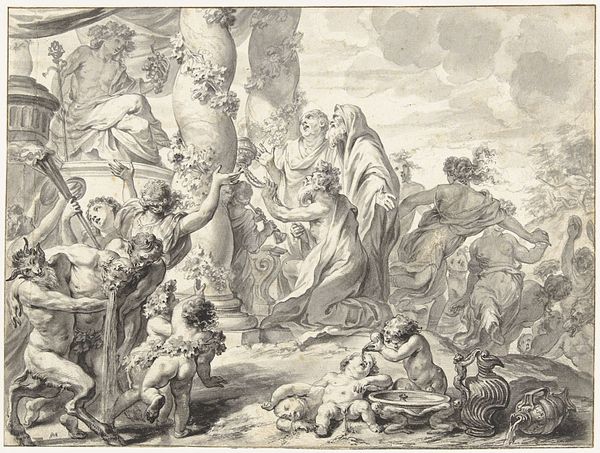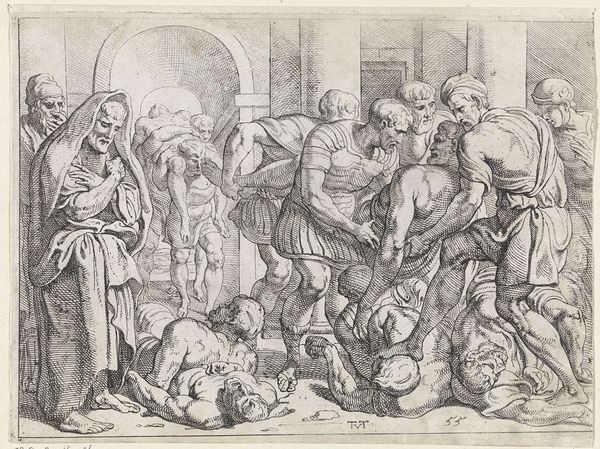
print, engraving
#
allegory
#
baroque
# print
#
landscape
#
figuration
#
cityscape
#
history-painting
#
engraving
Dimensions: height 199 mm, width 268 mm
Copyright: Rijks Museum: Open Domain
Theodoor van Thulden made this print depicting the Greeks embarking after the fall of Troy, using a technique known as etching. Notice how the etcher's line is the most fundamental material here, defining forms and conveying emotion. The image was made by coating a metal plate with wax, drawing into the wax to expose the metal, and then bathing the plate in acid. This eats away the exposed lines, which are then inked and printed. It’s a chemical process as much as a manual one. Consider how this method allowed van Thulden to create multiple identical images, each carrying the weight of the original artistic intention. This reproducibility democratizes the image, making it available to a wider audience than a unique painting could ever reach. Look closely at the quality of the line, the way it thickens and thins, creating depth and shadow. This is achieved by varying the pressure and speed of the tool. Ultimately, it is a powerful reminder of the artistry inherent in reproductive media, bridging the gap between craft and fine art.
Comments
No comments
Be the first to comment and join the conversation on the ultimate creative platform.
